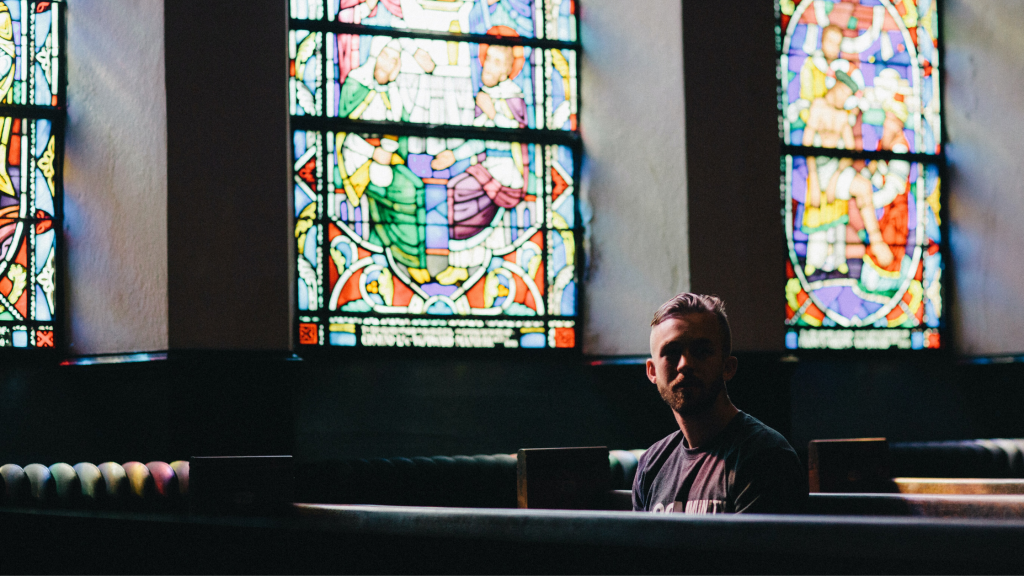Article by Sakimpa Enock

Photo by Karl Fredrickson on Unsplash
Most of our neighbourhoods are marked with several buildings of worship that presumably act as watchtowers and pins for mapping our location over phone calls. You’ll hear one respondent informing the other, “Niko hapa karibu na church” [Swahili for ‘I’m standing next to the church’], which by the way is not off the Holy Book. To many persons, it’s the place to be on a sunny Sunday morning because that is how it’s meant to be. It somehow appears as an entitlement to hang out in church every Sunday, from one generation to the next. So pick your spot (the church you’d love to go to), and let’s roll!!!
Therefore, I’m prompted to wonder whether we hold to the meaning and purpose of the church. I mean, most of us find ourselves every first day of the week, amongst a common gathering that tends to profess a common belief in one Being. We were dedicated as kids just like Jesus, enrolled to the Sunday school class when of-age, we graduated to the junior youth then to the senior youth then….it goes on and on. It became a culture embedded in our minds, an expectation to be met as years advanced. Ultimately, we were churched, weren’t we?
But let’s see if our understanding of the church meets the intentions of the Apostles and the believers in Acts. Remember, if there is a place that owes the accurate description of a church, it must be the origin of the church as found in the scriptures.
After the day of Pentecost, the followers and believers in Jesus Christ began to meet in rooms, with a devotion towards the apostles teachings, fellowship, breaking of bread and the prayers (Acts 2:42). They were characterized by a common faith, unity as members of the body of Christ and sharing what they had to cater to the necessities of the needy amongst them. In the 11th chapter of Acts, Luke informs us that it was in Antioch where the disciples were first called Christians (Acts 11: 26b)
As persecution during this period increased, believers became scattered as far as Cyprus, Phoenicia and Antioch (Acts 11:19). This was indeed God’s providence for the gospel to be preached to such and more places.
In the present times, people all over the world, though not everywhere, have heard of the gospel. This has been in obedience to Christ and in love for the lost to come to the saving power of Jesus Christ. Praise God that most of our parents got saved!! As a result, most of them have put effort into bringing us up in the ways of the Lord.
Years have gone by, and each week commences with our pastors labouring in the vineyard, preaching the same gospel that was delivered to us as received, by which we are to stand, being saved and holding fast (1 Cor. 15:1). This does not end here precisely since the preacher calls those who have not yet believed in the risen saviour to repentance. At least for my church, I can bear witness to this as the order of the day each time we fellowship together.
However, the fact that most of us have been brought up within the church culture has caused our minds to assume that we are on the right side of the journey of salvation. We have been absorbed into this detrimental assumption, with our eyes blinded to our sinful nature that beckons for God’s wrath, by assuming the call to repentance and trusting in Jesus Christ for salvation. Let me state this plainly as it can be, you are NOT and will NEVER be a Christian just because your family has been taking you to church. By no means, no!!
There is nothing wrong with your attendance of fellowships and services. But everything is wrong with your hardened heart not receiving and responding to the gospel of Jesus Christ in contriteness, repentance and believing in him who bore the wrath of God. He pursues and woes us to a saving relationship with the Father, by the power of the Holy Spirit.
You see, the Jews and their teachers of the law could not put up with our Savior and the Apostles preaching the gospel. To them, ceremonious events such as going to the synagogue, appearing in fancy feasts, or sitting at the council meetings appeared to be of more value. The Pharisees were judgmental of how people appeared on the outside, whilst themselves were like a cup cleansed on the outside but full of greed and wickedness in their hearts (Luke 11: 39). Jesus Christ warned them so many times of their sins, but, most of his warnings seemed to spark more hate for our Lord (Matthew 23: 25-35). Jesus Christ annihilated their line of thought. He said, “I am the way, the truth, and the life. No one comes to the Father except through me” [John 14:6]
The Jews thought that they were entitled to the gospel, as we would carelessly be prompted to think of ourselves as Christians by being ‘churched’. Paul, in Romans 11, swings the sledgehammer at the internally manifested pandemic of the heart amongst the Jews. First, as a continuation from the 10th chapter, he affirms that God had not rejected them. However, he calls them to see that what they were seeking to obtain by works was obtained among them by the elect through grace alone (Romans 11:6-7). And as an extension of God’s grace, the gentiles have received salvation to make them jealous, that they make seek God’s salvation in contrition of their spirits (Rom 11:11-12).
Beloved, we cannot afford to throw guesses at whether we are truly saved, or we are just riding in a fallacy of depending on the salvation of our parents, friends or family roots as our own. There is a safer place to build our houses, only on Jesus Christ the solid rock. Confess of your sins, repent and trust in him for cleansing. Sure, he will deliver.
